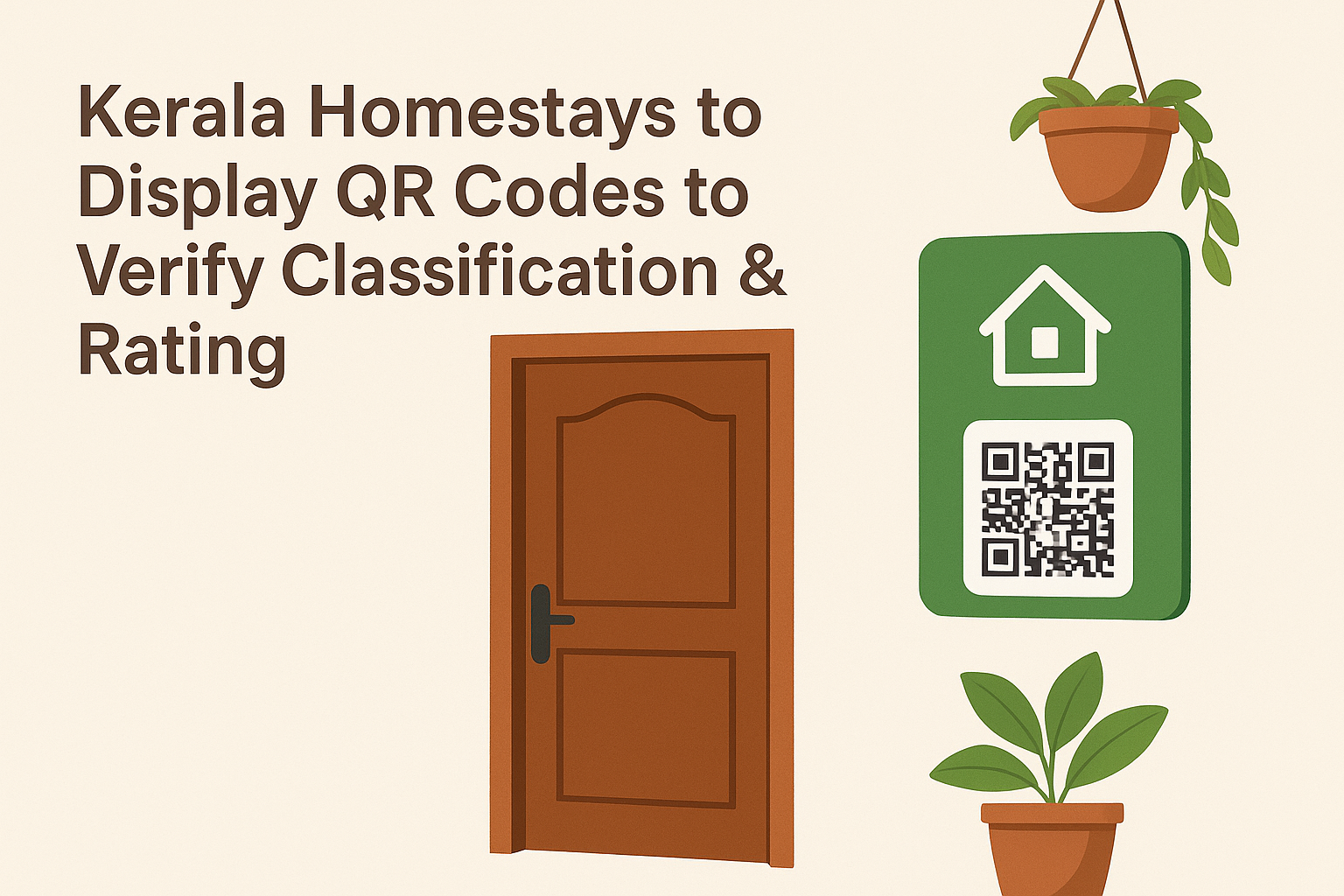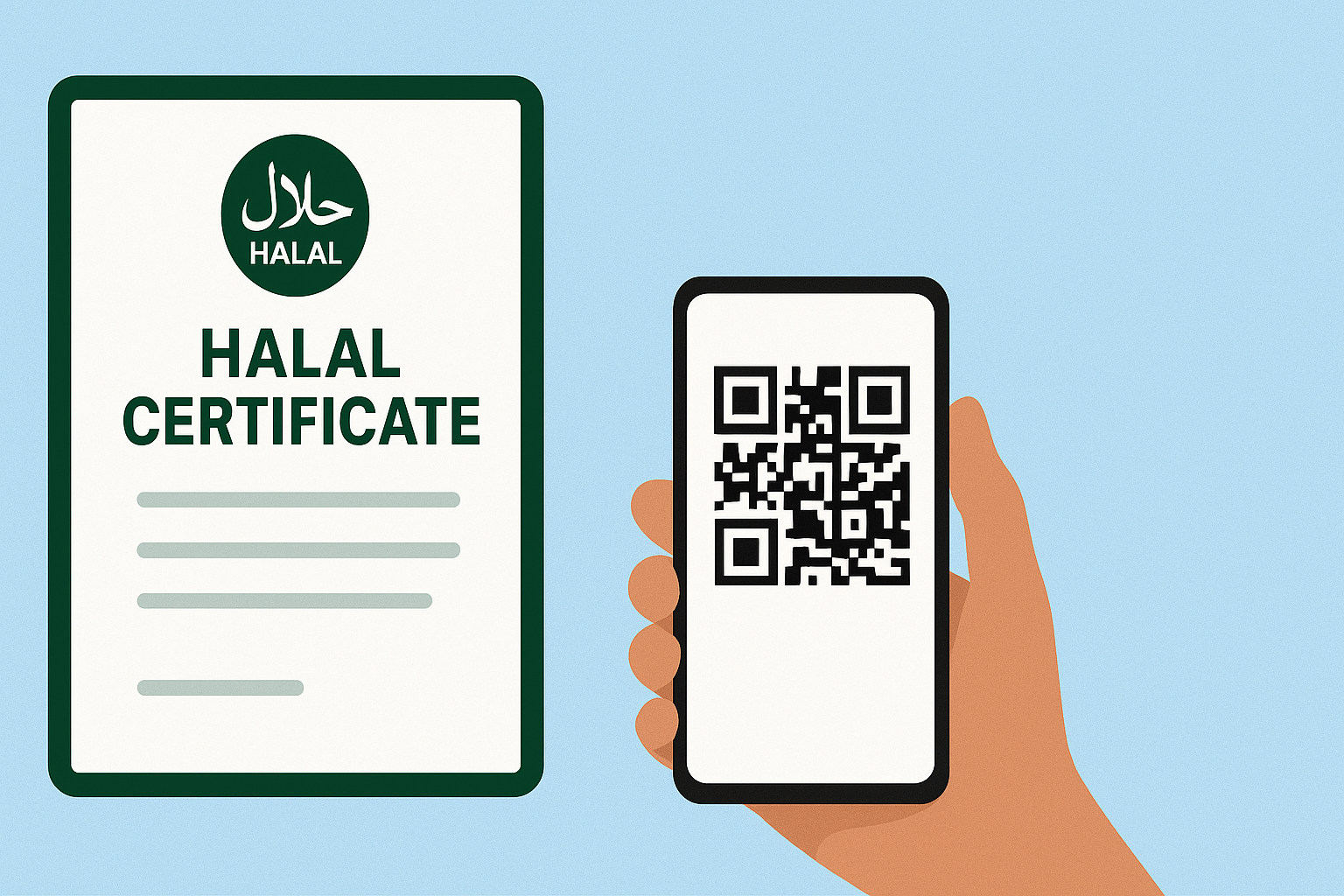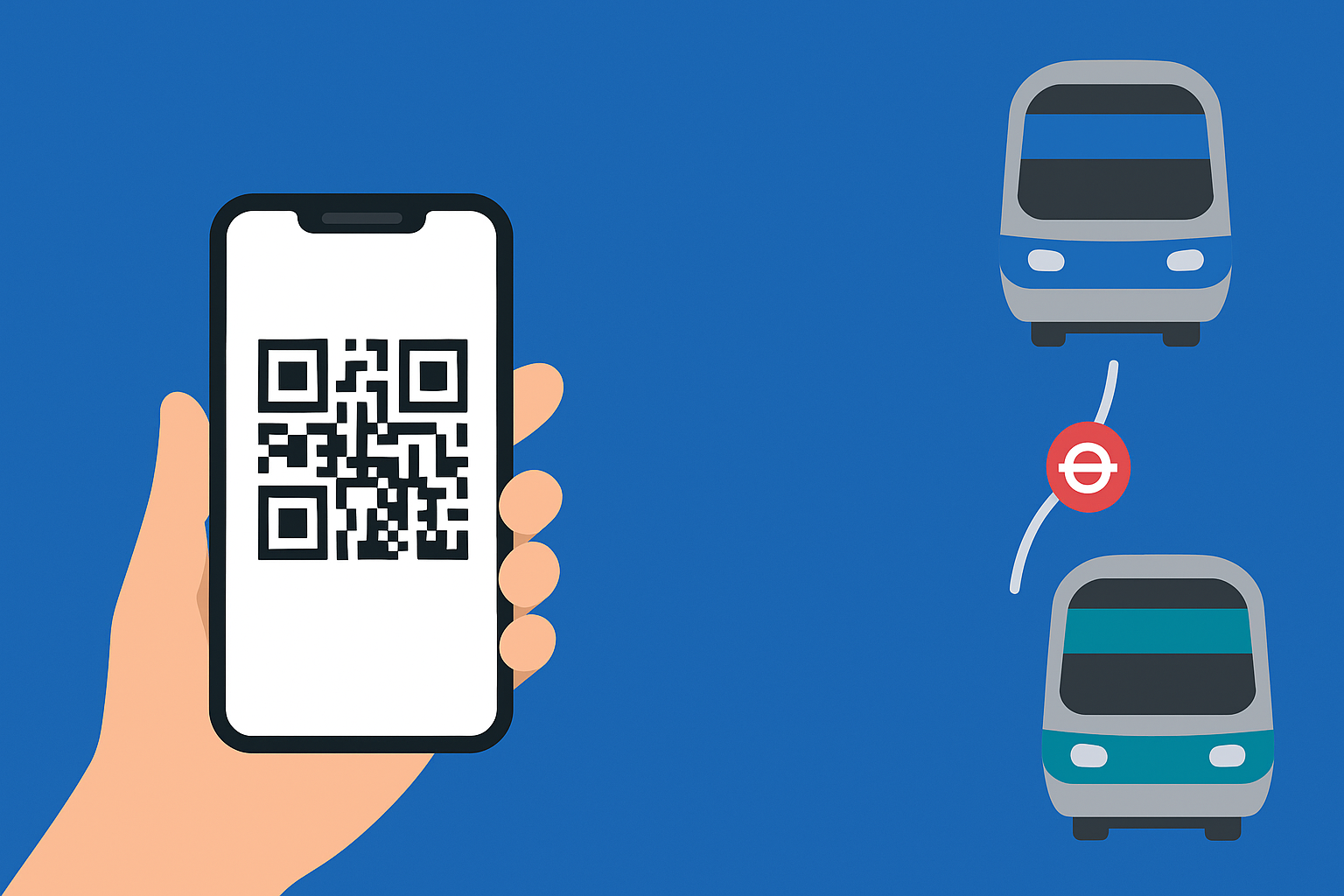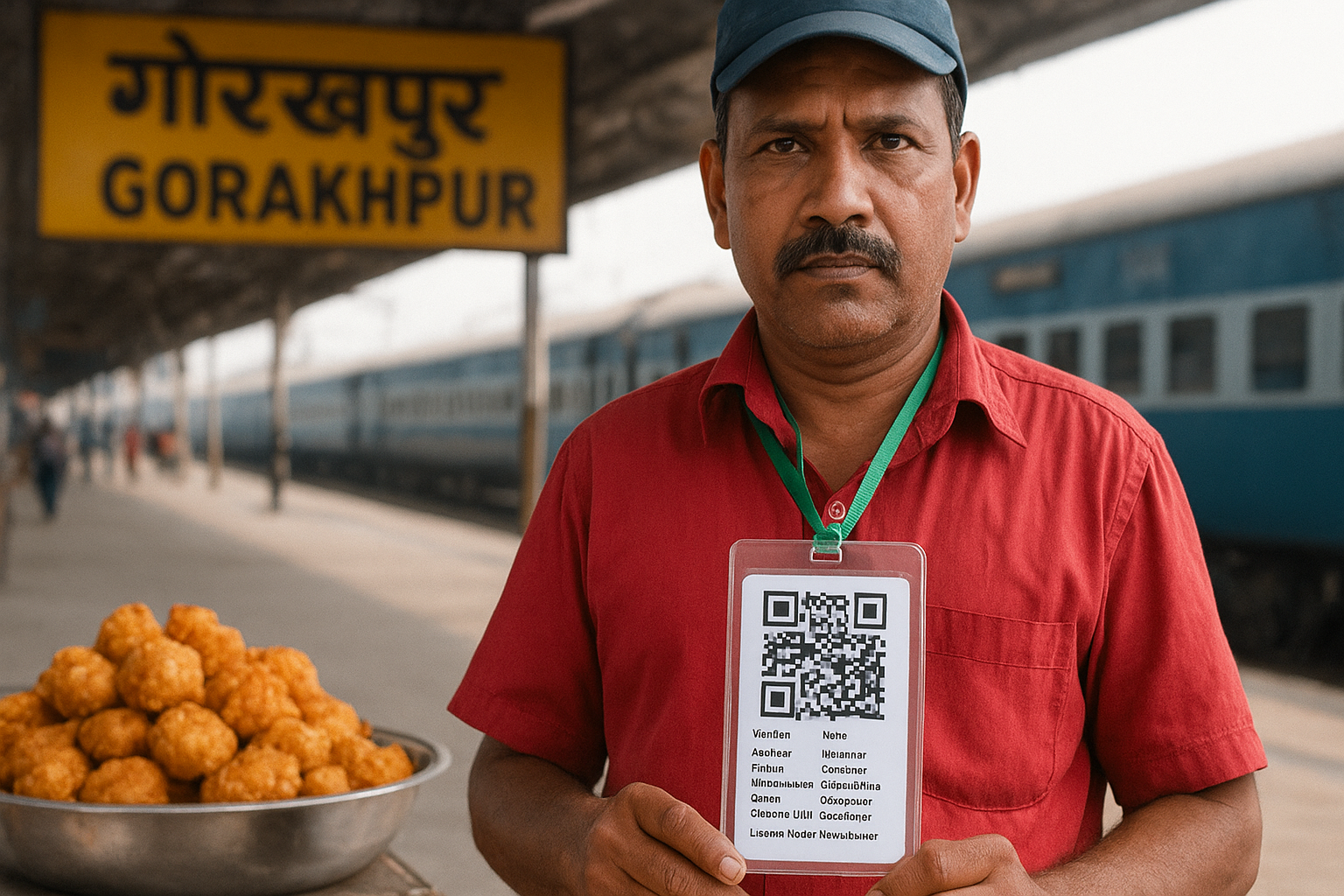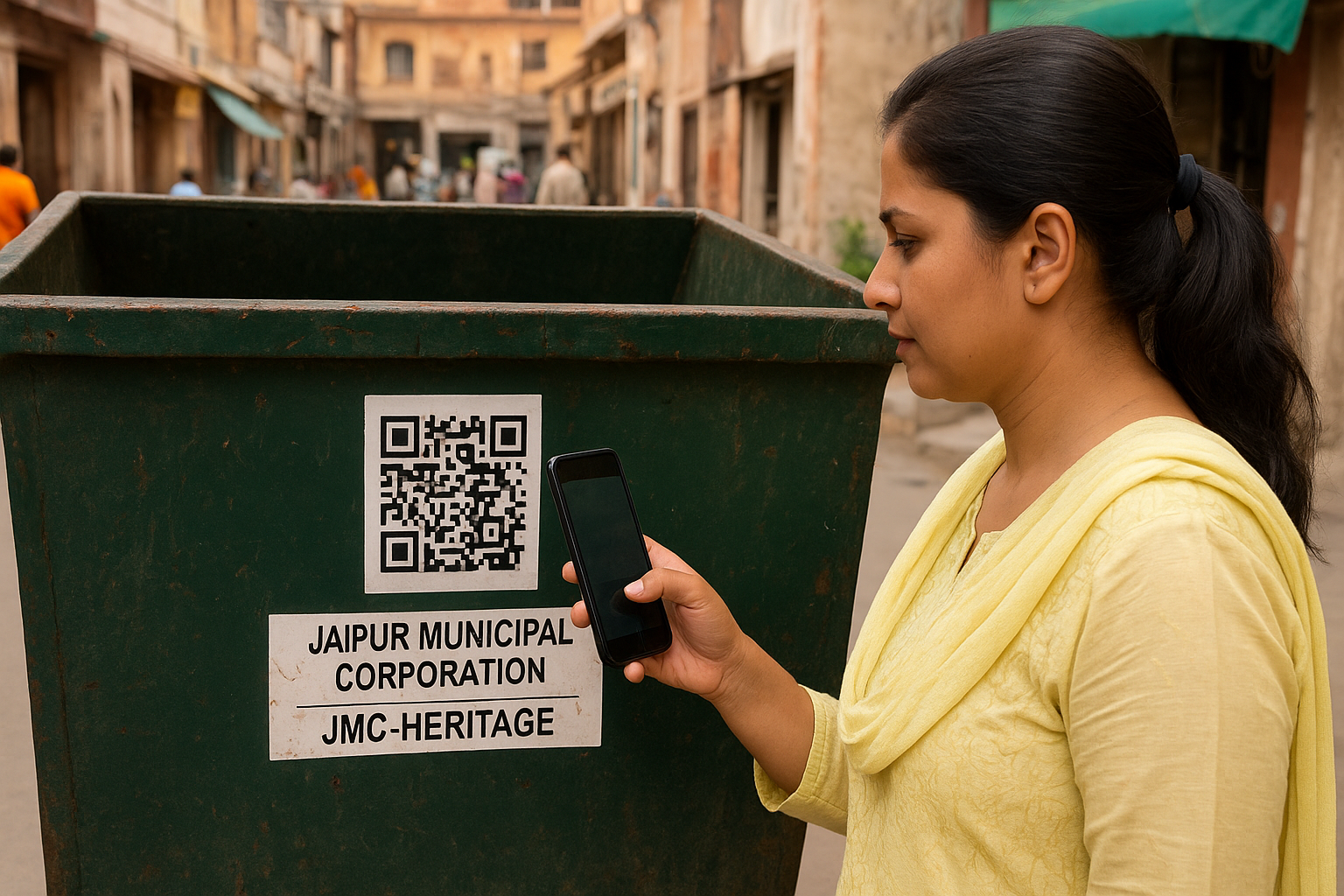Quick Summary
Kerala Tourism now mandates QR-coded classification boards for homestays, giving guests instant proof of official rating and clamping down on unregistered operators.
Table of Contents
1. Background & Rationale
- Kerala's experiential tourism relies heavily on homestays, but a surge of unregistered listings has raised concerns about safety and accountability.
- Reports indicate over 5,000 online listings, yet fewer than 1,200 hold state approval, highlighting a trust deficit.
- The QR code initiative leverages digital verification to weed out non-compliant operators and restore visitor confidence.
2. What the New Rule Entails?
- Approved homestays must display a brand seal and QR code at the entrance, linking to their verified classification record.
- Guests can scan the QR to confirm legitimacy, while booking platforms are expected to flag only verified properties.
- Service villas in residential complexes may participate only with residents' association approval.
3. Classification & QR Code System
Homestays are graded on amenities, hygiene, and guest experience:
- Silver
- Gold
- Diamond
Certified properties receive a classification certificate, brand seal, and QR code. Scanning the code reveals public data such as category, verification status, and validity. Non-compliant listings can be flagged or revoked.
4. Application & Compliance Process
- Submit the online application to Kerala Tourism.
- Upload documentation: property proof, location/possession certificate, building plan, photos, police clearance, food safety registration, tariff details.
- Pay the processing fee (reported ₹3,750).
- Complete site verification by officials.
- Receive classification, seal, and QR display board.
- Renew classification through periodic audits as required.
The Kerala Homestay & Tourism Society (K-HATS) supports training, compliance, and booking connectivity.
5. Enforcement, Monitoring & Penalties
- Operating without approval risks closure or legal action.
- Police stations and local bodies assist Kerala Tourism in field-level monitoring.
- Non-compliant properties may be delisted from online booking platforms.
- Expired or revoked QR codes immediately erode guest trust and booking eligibility.
- Regular audits keep standards high and deter lapses.
6. Impacts on Homestays & Tourists
For Homestay Owners
- Higher trust and visibility for compliant listings.
- Incentive to upgrade amenities and hygiene.
- Administrative work for documentation and inspections.
- Unregistered operators risk losing business or facing penalties.
For Tourists
- Instant verification of authenticity via QR scan.
- Lower risk of fraudulent or unsafe stays.
- More confidence when booking through digital platforms.
7. Challenges & Counterpoints
- Infrastructure gaps: Remote homestays may lack connectivity or digital literacy.
- Inspector bandwidth: Certification teams must handle large volumes without delays.
- Operator resistance: Smaller hosts may balk at fees or fear stringent audits.
- Market exclusion: Family-run units could struggle to meet requirements without support.
- Sustained oversight: Standards need continuous monitoring, not one-time checks.
8. Conclusion
Kerala's QR-based classification mandate blends digital verification with hospitality regulation. By making compliance visible and scannable, the state aims to uplift homestay quality, enhance safety, and guide tourists toward trusted hosts. Success will depend on balanced enforcement, capacity-building for homestay owners, and clear communication to travelers.


